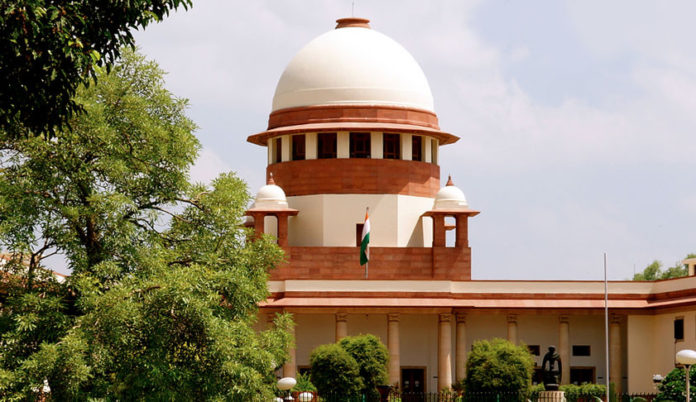Supreme Court orders to give the details of the fund received by political parties through electoral bonds.
The New Leam Staff

In a judgment passed by a three judge bench comprising of Chief Justice of India, Ranjan Gogoi, Justice Sanjeev Khanna and Justice Deepak Gupta ordered to submit the details of the donations received through electoral bonds.
The court ordered that by May 30th all the political parties should submit the details in the court. Rather than temporarily banning the system of electoral bonds scheme the court ordered to submit the details of the funding received by political parties.
The concept of Electoral bond is new globally; these bonds are instrument for donating money to political parties. These bonds are interest free bearer bonds which are exchanged between the donors and the political parties. This is not direct cash but a kind of memorandum of understanding signed between issuer and borrowers that showcases that the issuers has agreed to lend a sum of money to the borrower for a stipulated period of time.
Electoral Bonds are not issued by the issuer to the borrower directly rather these bonds are donated to an authorized Indian Bank by the issuer. These electoral bonds are then purchased by the specific political party from the respective bank. The amount of the electoral bond is then transferred to the verified account of the political party within 15 days. In no case the identity of the donor is revealed to the third party, it is only the bank and the bank officials who know the identity of the issuer.
The scheme of electoral bonds was introduced in the Finance Bill Act 2017. The centre defended the scheme by stating that it will help in maintain transparency in political funding. As the bonds are issued only by the State Bank of India and can be purchased in stipulated time in between the window period.
Earlier provisions of the scheme allowed for the purchase of the bonds within 10 days in the beginning of each quarter i.e in the month of January, April, July and October. But the judgment passed by the court on Friday restricted the purchase of the bonds during all the extra 5 dates provided in April and May.
The Centre and the Election Commission of India lauded the scheme as they thought it can be effective in curbing the flow of black money in the state.
A petition against the electoral bond scheme was filed in 2018 by the Nongovernmental organization, Association for Democratic Reforms. The petition was filed on the basis of several amendments done to important finance law in order to bypass the scheme from any kind of legal glitch.
The petitioner mentioned that for the introduction of the Electoral Bond Scheme, The Companies Act 2013, The Income-Tax Act 1961, The Representation of People Act 1951, The Reserve Bank of India Act 1934 and The Foreign Contribution Regulations Act 2011 all of them were amended by the central government.
The petitioner further argued that the clause in the scheme which does not discloses the identity of the donor affects the fabric of Indian democracy. They felt that it is the right of every citizen of India to know the details of the donor who are donating money to political parties and by denying disclosing the names the citizens of the state are denied of their rights.
The NGO petitioned to ban the scheme but Supreme Court felt that it will be a hasty decision to ban the scheme so soon and instead it has asked the political parties to submit the details of the money received through electoral bonds.












